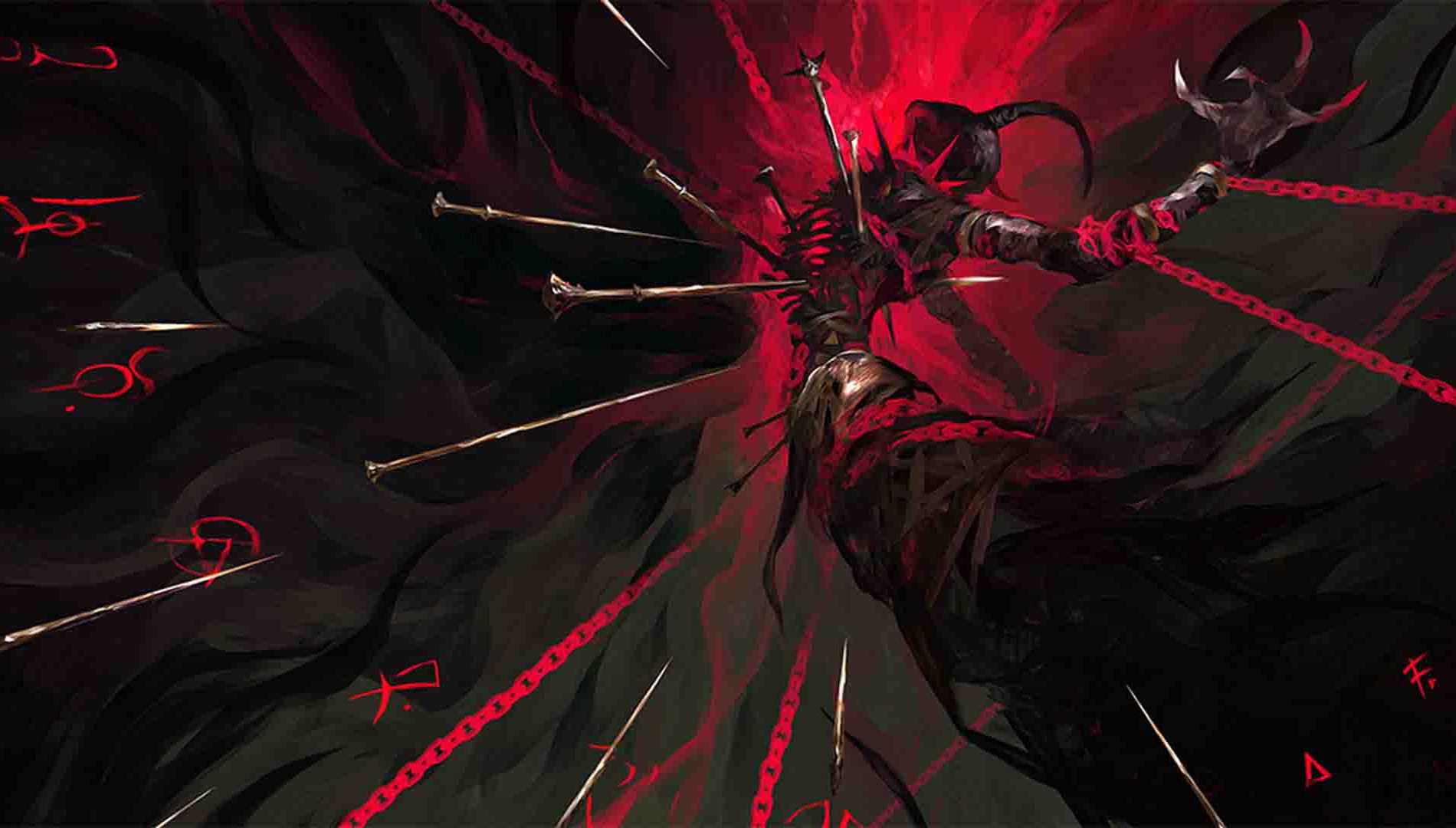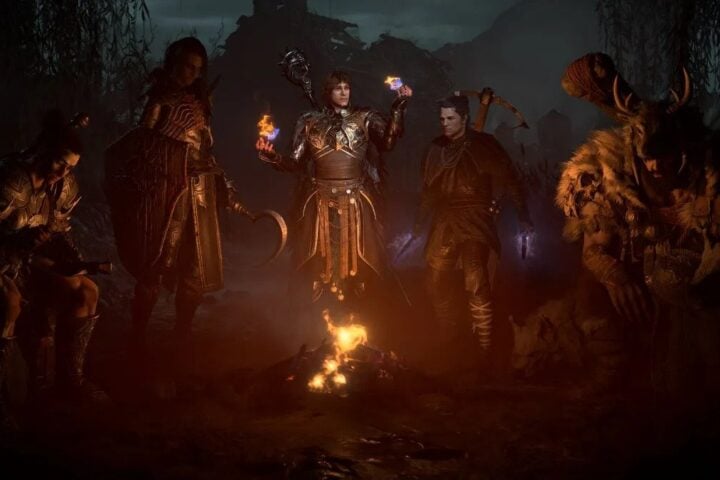There are cult classics, and then there are cult classics. A supreme example of the latter is Solium Infernum, which looked hopelessly dated upon its original 2009 release but whose methodical style of intricate politicking still managed to draw in a very dedicated audience. It also hinges on the player achieving a cult of personality as the ruler of Hell.
This rather extensive remake from Melbourne-based developer League of Geeks loses none of the qualities that made the original so beloved. This Solium Infernum still closely resembles an elaborate board game due to its measured pace and the tactile quality of your demonic holdings, which are represented by sinister-looking cards and occult tokens. But while the remake’s aesthetics owe a clear debt to both Diablo and Civilization, the core game remains one of a kind.
There are no bases to build, no resources deposits to mine. In the interest of gaining the most “prestige” and be elected to the throne of Pandaemonium, the underworld capital, the game’s archfiends will accomplish their goal through political maneuvering, behind-the-scenes rituals, and occasional skirmishes. Nothing, after all, is more hellish than bureaucracy, and Solium Infernum is all about taking advantage of and subverting the rules that restrict your actions.
You cannot, for one, enter enemy terrain without cause, so cause must be manufactured. Make a demand of tribute from a rival and, if they refuse, you can declare a “vendetta,” a state of limited warfare where you wager prestige to fulfill an objective within a set number of turns, like destroying two opposing legions or capturing three tiles of enemy territory. But vendetta doesn’t allow you to attack the enemy stronghold, which eliminates a player once destroyed. And while it’s eventually possible to wholly eradicate your opponents, a vendetta is more about winning prestige, cutting rival forces down to size, or ousting a prestige-generating landmark from an opponent’s clutches. It’s a brief explosion of heat in a much longer, colder war for supremacy.
Solium Infernum’s masterstroke is how much commitment it requires. To start a vendetta, you must wait one turn to send another demand, one turn for the enemy to respond, and one turn to formally declare a vendetta before you can finally march into their borders—that is, if your opponent doesn’t simply pay the fee to keep you off their back for a few turns. To further complicate matters, you start the game with only two order slots per turn, and making a demand takes up one slot that might have been used to gather currency, bid on an item, perform an occult ritual, or generate a scheme that will reward you with prestige once fulfilled.
Thus, the simple act of moving a unit, the bread and butter of most strategy games, carries a weight on par with all manner of subterfuge that might better suit your purposes in the long term. It’s a meticulous game of risky trade-offs, of generating obstacles and distractions for your opponents as you work toward any number of means for gaining the upper hand. Maneuvering your units to fulfill a vendetta will leave you open to other opponents, who can fling prestige-draining insults or make monetary demands of their own, fully aware that your refusal means risking war on a second front, perhaps even a third or a fourth.
Even with the minimum player count of four, this is a game with quite a lot going on. I haven’t even touched on the random events, the rotating turn order, the framing of other players, or the ability to seize Pandaemonium by force if the race for prestige isn’t going your way. The interface isn’t always up to the task of conveying so much information, sometimes failing to display certain variables or nesting other actions and statistics a few menus too deep.
But confusion works to the game’s advantage, because having your plans foiled by overlooking some small detail or underestimating the opposition perfectly fits the concept of struggling to navigate hell’s bureaucracy. Nowhere is this more apparent than the intentionally inconvenient money system, which is broken up across four different currencies that make it difficult to acquire exact amounts and often force you to overpay. Hell doesn’t believe in giving out change.
The game is played over such a long period of time and involves enough random elements that you can’t possibly form a foolproof plan, and such entrancing chaos is what makes Solium Infernum shine as a multiplayer experience. The single-player campaign supports ordinary matches and specialized scenarios for each of the eight playable characters with distinct victory conditions. But when you play against human opponents, the ruleset takes on an added layer of guessing at ulterior motives amid mounting paranoia and misdirection. Betrayals can be cataclysmic, and some of the drama drains from the experience when you’re facing an AI opponent whose biases and reactions to any backstabbing or general frustration are simulated.
Solium Infernum’s asynchronous multiplayer mode lets you play in up to 10 games at once while free to close out of the program once players have entered their orders for a turn. Played in this fashion, every decision begins to feel seismic, as you’re left to ponder the other moves you might have made during the plentiful potential downtime (the turn timer starts at 24 hours and stretches up to a week), as well as any number of consequences for said moves.
Solium Infernum already has its fans, but more so than the original, it feels as if this remake, given its extremely specific brand of prolonged negotiations and conniving, will live and die by whether it grows that dedicated audience. Perhaps the greatest compliment I can pay Solium Infernum is that I very much hope it finds one so I can play more of it.
This game was reviewed with code provided by ICO Partners.
Since 2001, we've brought you uncompromising, candid takes on the world of film, music, television, video games, theater, and more. Independently owned and operated publications like Slant have been hit hard in recent years, but we’re committed to keeping our content free and accessible—meaning no paywalls or fees.
If you like what we do, please consider subscribing to our Patreon or making a donation.





